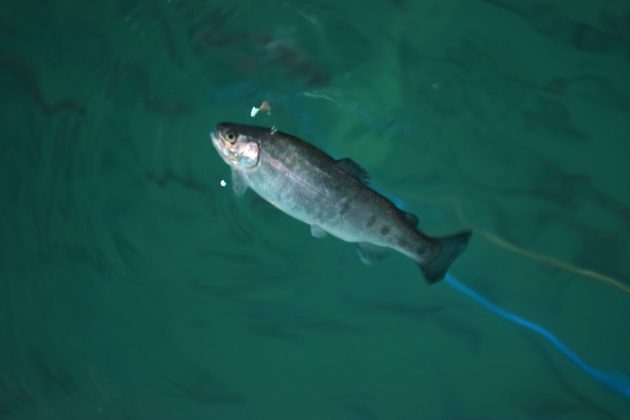“There was a significant reduction in the stress response after repeated exposure, but it still had a lasting effect on the brain,” says researcher.
Salmon exposed to human-generated noise experience stress that can hinder their growth and reproduction, according to a study released Wednesday by the Norwegian University of Life Sciences (NMBU).
The study focused on how noise from fish farms, such as boats, pumps, and construction, affects farmed salmon. Researchers examined whether sporadic and consistent noises—like the sound of nearby vehicles or farm workers—have a negative impact on the fish.
“A lot of fish farmers are concerned that these noises could be causing stress in the fish, and that’s what we set out to investigate,” said Marco Vindas, associate professor at NMBU’s Veterinary School.
Using low-frequency sounds that mimic natural predator movements, the researchers conducted an experiment over six weeks, exposing salmon to the same sound multiple times. They found that fish reacted strongly to the initial noise, trying to move away from the source. While the intensity of the response lessened over time, fish closer to the noise source continued to exhibit strong reactions.
Stress and long-term effects
The researchers measured stress hormone levels, such as cortisol, in the salmon. While cortisol levels spiked when the fish first heard the sound, they decreased after repeated exposure, suggesting the fish became somewhat accustomed to the noise. However, Vindas cautioned that the long-term effects on fish welfare remain concerning.
“There was a significant reduction in the stress response after repeated exposure, but it still had a lasting effect on the brain,” Vindas said. He noted that parts of the brain involved in stress regulation and serotonin production were active throughout the experiment, with serotonin levels remaining elevated. Prolonged serotonin imbalances can lead to poor growth and development, a condition sometimes referred to as “loser fish syndrome” in aquaculture.
Implications for fish farming and wild fish
The study raises questions about the broader implications of noise pollution in aquaculture and its potential impact on wild fish populations. Vindas noted that human-generated noise could similarly affect wild fish near fish farms or areas with significant human activity.
“While this study was conducted in a farmed environment, the findings are also relevant for wild fish populations,” said Vindas. “Man-made noise, especially sporadic noise that fish can’t anticipate, could impact growth and reproduction in wild species as well.”


